In recent years, the number of women in top leadership positions has grown. Boilermaker successes abound—and Purdue’s Brock-Wilson Center for Women in Management is helping nudge those numbers even higher.
Meara Habashi (MS HHS’05, PhD HHS’08) has spent much of her academic career studying the challenges that women face as they climb the career ladder.
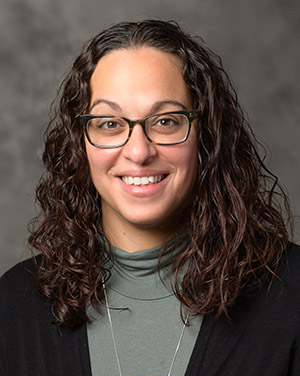
She’s examined everything from external barriers, like bias and unfair organizational policies, to internal obstacles, such as impostor syndrome, that can prevent women from taking on plum roles for which they might be perfectly suited. So when the directorship of the Brock-Wilson Center for Women in Management opened up at the Krannert School earlier this year, she jumped at the opportunity. “When your research can match your everyday job—that’s a dream come true,” she says.
To be sure, the challenges the center seeks to address are significant. While studies show that women have made plenty of inroads in management—the number of women in leadership roles from manager to CEO has ticked upward over the past five years—there’s still plenty of room for improvement. Today, just 17% of C-suite executives are women, and only 37 Fortune 500 CEOs are women.
The center supports a range of initiatives based on three pillars. The first is SeeHER, which aims to raise the visibility of gender equity issues by highlighting the work of alumnae, students, faculty, and staff. The second is EmpowHER, which focuses on education. This pillar includes one of the center’s flagship programs, the Empowering Women in Business summer program, which sends 60 to 80 ambitious high school juniors and seniors through a weeklong business boot camp. The last piece is BeHER_d, which supports efforts to take meaningful action. This pillar includes case study competitions and specific solutions to combat bias in the workplace.
The larger goal, Habashi says, goes beyond supporting women in the workplace. “Our goal is to create a gender-equal workplace. To create an equitable work environment, everybody has to be involved.”

Katie Rippel knows we succeed together.
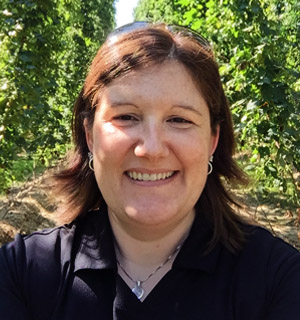
Katie Rippel (A’02, MS A’03) was just 20 years old when she landed an internship at Anheuser-Busch, and it wasn’t long before she was leading a team of 15 people—many of them men who were her father’s age.
It was a strange position to be in, she admits, and some might have decided to lean in to that authority with a heavy hand to compensate for a lack of experience.
But Rippel flipped the script. “I knew that in a lot of ways, they knew their job better than I did,” she says. “So I explained that I wanted to learn from them. I wanted to work together with them.”
It was an approach that quickly earned the confidence of her team—and the attention of her bosses.
Since then, she’s climbed from process engineer to senior brewmaster to her current role as a global director for plant optimization. Today, she and her team help ensure quality, efficiency, safety, and sustainability at more than 350 Anheuser-Busch facilities worldwide.
While the issues can get technical—analyzing the throughput of a packaging line or understanding how efficiently the company is using its raw materials—she brings the same collaborative attitude she had when she started at the company. “I help our teams and our sites around the world manage their chaos,” she says. “I help them solve their problems so they can always get back on track.”
BE A GLASS BREAKER: FIND YOUR CREW
“Women deal with a lot in this environment—it’s industrial; it’s technical; it’s mostly men. I have a circle of women at my company who are really close friends, even more than just a network. We vent to each other, we bounce ideas off each other, and we motivate each other. I think it’s important to develop and strengthen a group like this.”
Dwana Franklin-Davis cracks the code.
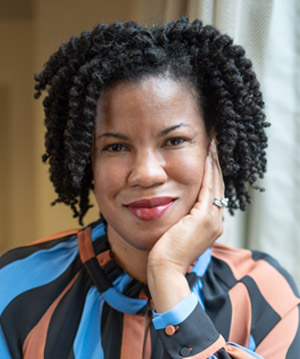
Dwana Franklin-Davis (M’01) seemed to have her career all figured out. She had spent more than a decade at Mastercard climbing the corporate ladder. She had served as vice president for a range of global technology teams at the company, and she was a founding member of Mastercard’s Black business resource group.
But in 2019, an executive search firm contacted her with an intriguing opportunity: Reboot Representation—an organization dedicated to doubling the number of Black, Latina, and Native American women graduating with computing degrees by 2025—was looking for a CEO. For Franklin-Davis, who describes herself as an IT person through and through, it was as though the position had been written expressly for her. She took the leap.
Today, she leads an organization that has partnered with 17 major tech companies, including Microsoft, Amazon, and Verizon. With their support, she and her team distribute grants that carry out Reboot’s larger goals. Funded initiatives include those that help students prepare for computer science AP exams and summer bridge programs designed to serve as “on-ramps” to computer science for college women who have little background in the field.
With robust tracking and reporting systems in place, Franklin-Davis hopes to measure what works best so that the organization can double down in the right places.
For Franklin-Davis, the work is about more than a degree. It’s a catalyst for real change. “A computer science degree is not only going to change these girls’ lives and the trajectory of their earning potential,” she says. “It’s also going to change their families and the communities they serve.”
BE A GLASS BREAKER: THINK BIGGER
“To be a leader, you’ve got to have a point of view and a vision. For people to trust you, they have to believe in where you’re taking them.”

Jennifer Guidry thinks outside the barrel.
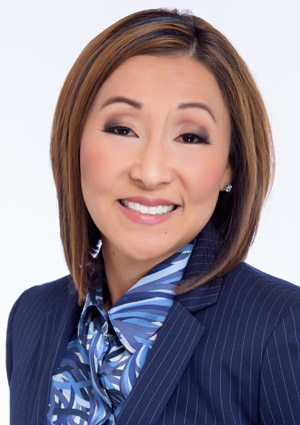
Jennifer (May) Guidry (HHS’96) was still learning the ropes as an environmental remediation contractor in her 20s when she learned a critical lesson about leadership in difficult moments.
At one point, she and her team were working to move some contaminants safely across the country when a local labor union’s interest was piqued, which led to the operations being temporarily halted. Union leadership came to the site seeking a mutually agreeable resolution, and Guidry and her team found themselves in unfamiliar territory. Neither she nor her boss had any experience with labor unions. “My project manager—a smart, amazing manager—said, ‘What are we going to do?’ and I thought, ‘You’re asking me?'”
Guidry says that the moment was an inflection point. “I could step up, figure it out, and learn on the fly. Or I could fold.”
Guidry stepped up.
The decision to take the next big challenge head-on is one Guidry has made again and again in her career, and it’s led her to increasingly high-level roles. Today, as vice president of global health, safety, environment, and environmental social governance for Precision Drilling, she does strategy work to help make oil and gas drilling safer and cleaner.
And as the world moves to ever-cleaner energy solutions, Guidry sees oil and gas as part of that solution. Recent technological advances, for example, have helped cut carbon emissions for oil and gas.
For the foreseeable future, she says, oil and gas will be a big part of helping the world economy grow, including helping the fast-growing middle class in emerging countries. The more she can do to make this energy clean, safe, and abundant, the better off she believes we all can be. “Energy is an incredibly powerful sector,” she says. “It creates industries for the world economy, and it has real purpose. Once I got started, I never wanted to leave.”
BE A GLASS BREAKER: BE BOLD, AND NEVER STOP LEARNING
“I spent years just trying to muscle through my leadership journey on my own; it’s OK to ask for help, and your teachers will show up. You can’t shy away from challenges—they are here to teach us about who we are.”
Deanna Pursai is top of the class.
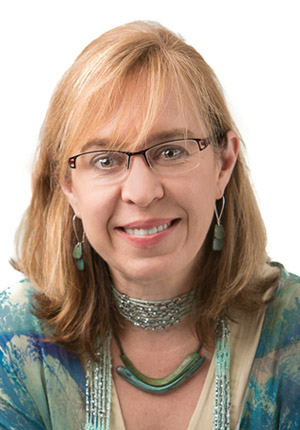
DeAnna Ellenberger Pursai (EDU’95) knows the value of a great education: she has an undergraduate degree and a master’s degree, and she considers herself a lifelong learner. That’s one of the reasons she found the gap between what was possible for herself and what was possible for her younger sister so disheartening. Her sister, an enthusiastic student with Down syndrome, got all but shut out of the educational system once she turned 22.
Pursai noodled on that problem for years. In 2007, she met Pamela Lindsay, whose daughter has Asperger’s syndrome. They talked about the frustration they felt from seeing the people they loved age out of the educational system. They knew how much of their family members’ potential was being squandered.

In those conversations, Pursai saw a kindred spirit and potential partner. “I said, ‘How about we start a college for adults?’ and she said, ‘OK.’ That was that,” Pursai recalls.
In 2009, the pair launched the College for Adaptive Arts (CAA), a community college–like experience for adults with special needs. The San Jose–based institution started with just one musical theater class for 12 students, but in fits and starts, the college grew in size and scope.
Today, the school serves more than 135 students in 10 colleges ranging from art and dance to communications and business. It has its own small campus and an official college seal worthy of a sweatshirt.
Pursai is proud of the school’s growth over the past decade and is excited that CAA has entered into its first formal agreement with West Valley College in Saratoga, California, whereby it will be a living-learning lab and work-study, leadership-training program for host-campus students. The vision is that this layer of expanded college education can fit on every campus of higher learning one day.
But even more than that, Pursai says, is her desire to keep the college humming for every student who comes through the doors and is transformed. “When these students can reach their full potential, it’s just ridiculously joyful,” she says.
BE A GLASS BREAKER: KEEP GOING
“I have had times where I’ve fallen flat on my face—I’ve probably made every mistake out there! But I remember the quote from Paulo Coelho: ‘If you really want something to happen, the world will conspire to help you.‘”
Jane Brock-Wilson has made a name for herself.
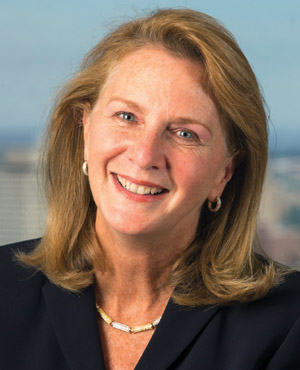
Jane Brock-Wilson (M’78) graduated from Purdue decades ago, but ask her about her experience, and she’ll describe it with the kind of joyful detail that makes it seem like she was just on campus yesterday.
She beams when referencing the women who inspired her—deans Beverley Stone (HDR LA’76), Barbara Cook (PhD EDU’67, HDR LA’96), and Betty Nelson, for starters—and the gig she landed to drive CEOs from the airport to campus. She marvels at the transformational assignment she got to write her own obituary at 20—a nudge to think expansively about what she might want to accomplish with her life.
“I was a hometown kid,” says the Lafayette native. “Purdue was such an important foundation for me.”
Brock-Wilson ultimately landed in Boston, becoming a managing director at the private equity firm Berkshire Partners. While she was often the only woman in the room, she found male mentors and champions who were willing to go to bat for her when challenges arose.
But even as the years piled up in Massachusetts, her heart always remained, in some ways, in Indiana. Later, when she began to think about the organizations she most wanted to support, Purdue was high on her list.
In 2015, she funded the Brock-Wilson Center for Women in Management, which she hopes will further the progress of women in top leadership positions. “The kinds of topics I was studying in the 1970s—gender equity, inclusion, diverse work environments—are the things we’re still talking about today,” she says. “We need to help women navigate these environments, but we also need to create better environments. And we need all leaders to help with that.”
BE A GLASS BREAKER: BE YOUR AUTHENTIC SELF, AND LET PEOPLE IN
“We’re all human beings, and we are looking to find meaningful connections. What do we have in common other than business? Basketball? Kids? Community engagement? It’s not just business. Give people a way to know you.“

